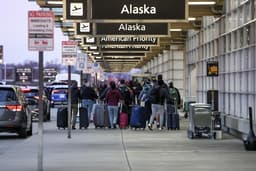Home / Business and Economy / Millennials Embrace Gambling as US Economy Turns 'Casino-Like'
Millennials Embrace Gambling as US Economy Turns 'Casino-Like'
17 Nov, 2025
Summary
- US economy exhibits "frenetic, casino-like feel" with frothy markets and anxious consumers
- Half of young men in US have online sports betting accounts, some developing gambling problems
- People avoiding "good risks" like marriage, jobs, and relationships in favor of speculative bets

As of November 17th, 2025, the US economy is exhibiting a "frenetic, sweaty-palm feel" with frothy markets and anxious consumers. This "casino economy" is fueled by a surge in AI speculation and the lingering effects of low interest rates.
While the economy has never been safer, with more social safeguards and household wealth, many Americans are avoiding healthy risks like changing jobs or starting families in favor of speculative bets. Half of young men in the US now have online sports betting accounts, and some are developing gambling problems.
Experts warn this risky free-for-all is bound to crash, though the timing remains uncertain. The rise of AI has created new boom-and-bust cycles, while the aftermath of low interest rates has brewed opaque risks in private credit and fueled speculation in crypto, meme stocks, and political events.




